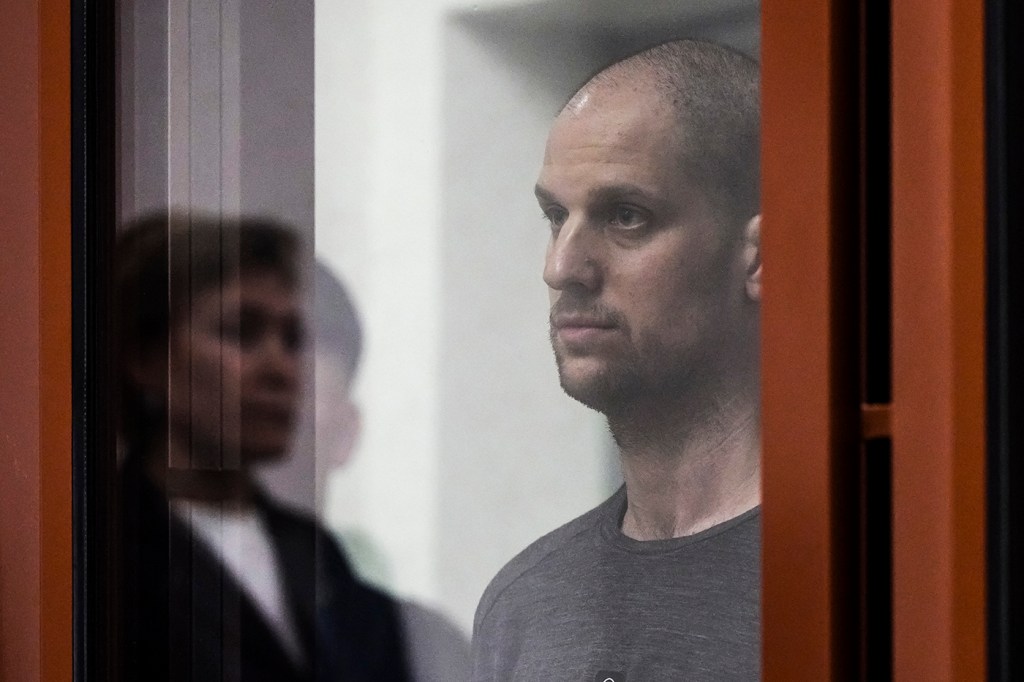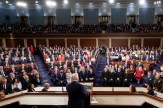How the US managed to free Evan Gershkovich, Paul Whelan in ‘unprecedented’ prisoner swap
“These deals can be quite complex and can take months — and in this case, years — to come to fruition,” says Alexandra (Xander) Meise, an associate teaching professor in the School of Law at Northeastern.

A historic high-profile prisoner swap involving the U.S., Russia and other countries saw the return of Wall Street Journal reporter Evan Gershkovich and former U.S. Marine Paul Whelan to U.S. soil this week.
The Wall Street Journal, detailing the exchange, called it “the largest and most complex East-West prisoner swap since the Cold War.”
Russian-American radio journalist Alsu Kurmasheva, captive in Russia, was also part of the deal, along with another American. Scores of others on the other end of the deal were released as well in the elaborate exchange, including accused Russian spies in Slovenia, Norway and Poland.
“These deals can be quite complex and can take months — and in this case, years — to come to fruition,” says Alexandra (Xander) Meise, an associate teaching professor in the School of Law at Northeastern. “We’ve been talking about Paul Whelan for a long time.”
There’s little precedent for a swap of such size, but experts have long pointed to a rise in illegal detainments by autocratic regimes in recent years.

“Certain states, such as Russia and North Korea, have demonstrable records of unlawfully detaining foreign nationals, and later engaging in diplomatic negotiations regarding that detention,” she says.
Gershkovich, a reporter for the Wall Street Journal, was taken into custody while on assignment in Russia in Yekaterinburg, a city in the Ural Mountains, in March 2023. He remained incarcerated for more than a year on charges of espionage, which the U.S. government forcefully and consistently disputed.
Whelan, a former Marine and corporate security executive, had been detained in Russia on espionage charges, since 2018. He, his family and the U.S. government have long maintained that the charges were fabricated, and that he was being wrongfully detained.
These deals can be quite complex and can take months — and in this case, years — to come to fruition.
Alexandra (Xander) Meise, an associate teaching professor in the School of Law at Northeastern
Vladimir Kara-Murza, a British-Russian dissident and Pulitzer Prize-winning columnist who is an American resident, was also released by Russia.
In the exchange, Germany released Russian hit man Vadim Krasikov, who was convicted of shooting a rebel leader in 2019. Russian officials reportedly said there would be no swap without him.
The Office of the Special Presidential Envoy for Hostage Affairs in the State Department typically oversees these high-level negotiations. “It is an extremely delicate situation that requires experience and skill,” Meise says.
“That those efforts behind the scenes have come together now is great for the families,” Meise says. “But this is not something that would have happened quickly with regard to, for example, timing of the Olympics or the timing of something immediately pressing with regard to the Russia-Ukraine War. This has been in the works for a long time — at least, as it concerns Whelan.”
President Joe Biden was, according to reports, simultaneously negotiating the prisoner swap as he was mulling over whether to leave the 2024 presidential race, ultimately doing so on July 21.
“The Biden administration has spoken rather strongly about its desire to have a resolution to these unlawful detainments,” Meise says. “The national security adviser was quoted recently noting the fact that this is something that Biden wanted to get done during his tenure.”
The number of Americans wrongfully detained in Russia has grown in recent years as relations between the two nations soured in the wake of Russia’s invasion of Ukraine, reaching lows not seen since the Cold War.
The swap comes nearly a year and a half after the U.S. secured the release of WNBA star Brittney Griner in another historic prisoner exchange. Griner was successfully swapped with Viktor Bout, a Russian arms dealer nicknamed “The Merchant of Death.” Bout had been in U.S. custody for a decade — and was previously described as among “the highest-profile Russian in U.S. custody.”
The Kremlin declined to comment on news of the exchange. “We are not saying anything on this topic yet,” Kremlin spokesperson Dmitry Peskov said, according to CNN.
In a speech following the news, Biden condemned Vladimir Putin’s government, calling the legal proceedings that resulted in the incarcerations “show trials” — and the deal a “feat of diplomacy” involving multiple countries.
“All four had been imprisoned unjustly in Russia,” Biden said. “Today is a vital example of why it matters to have friends in the world. … Our alliances make people safer, and we are seeing that today.”







